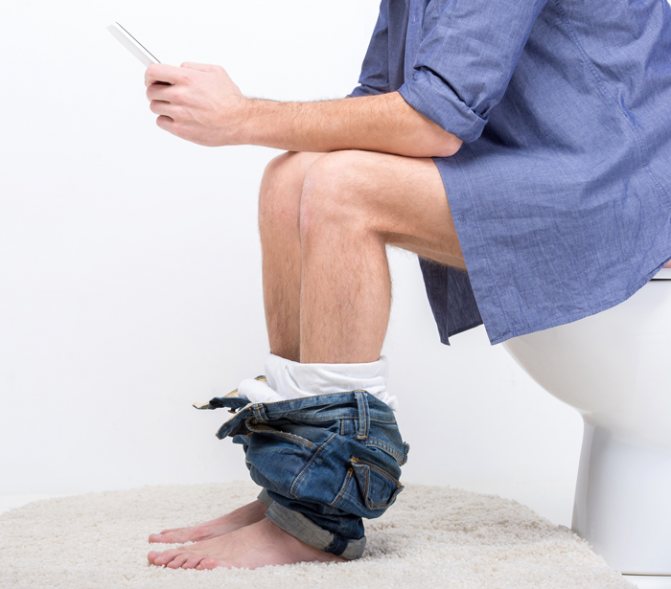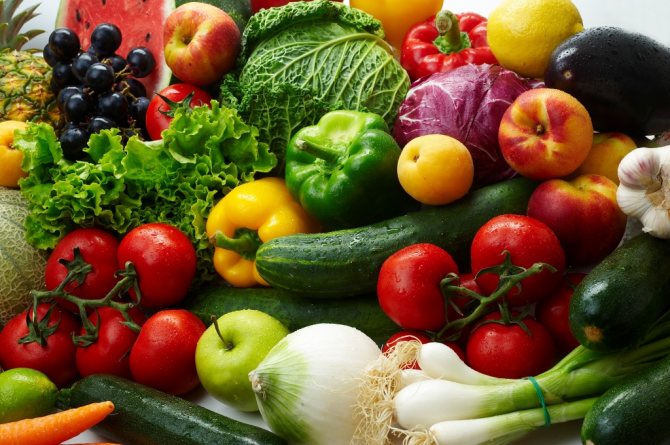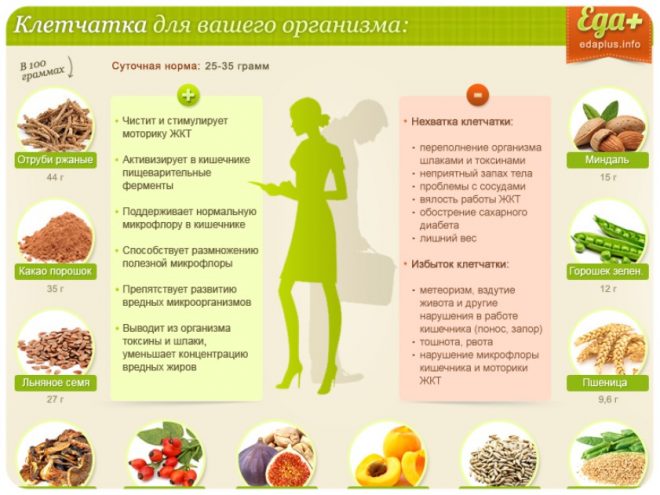Causes of constipation. Constipation after taking medications. Laxatives for constipation
Everyone knows that the main remedies for constipation are plant foods rich in fiber and physical activity. There are even gymnastics to treat constipation. However, lifestyle is not always to blame for constipation in adults. The famous doctor Alexander Myasnikov lists the medical causes of constipation (including constipation after taking medications) and talks about laxatives.
Definition of chronic constipation: bowel movements less than 3 times a week for at least 3 months. We consume little vegetables and fruits, fatty, sweet or salty foods, constant stress, smoking. We sit all the time - in public transport, at work, at home in front of the TV. What kind of normal chair is this?!
Let’s consider before we attribute all the problems to lifestyle: what else could be hidden behind this? After all, chronic constipation can be a symptom of a number of sometimes quite harmless diseases!
Fiber for constipation: effect on the intestines and methods of administration
The main source of plant fibers are fruits, so the easiest way to saturate the body with them is to consume them.
You can also eat fiber in ready-made form by adding bran and other grains to your food. However, whole fibers are characterized by their insolubility, so they should be used with caution in case of chronic diseases of the stomach and duodenum.
Plant fiber has the following effects on the intestines:
- normalizes microflora nutrition;
- adsorbs bile acids, wastes and toxins;
- improves the absorption of iron and calcium;
- performs the function of a bulk laxative, regulating stool;
- regulates the production of digestive enzymes;
- protects the mucous membrane;
- improves metabolic processes;
- normalizes acidity levels.
If we talk about fiber found in food products, then you can eat it without fear. It is easily digested by the body and excreted naturally, while improving stool. Ready-made fiber has some caveats.
Separate intake of fiber should begin with small portions - half a teaspoon. In the absence of undesirable manifestations, the dosage can be gradually increased to 2–3 tbsp. l. per day. The duration of therapy with prepared fibers is no more than three weeks, after which it is necessary to take a break.
Causes of constipation
Firstly, endocrine disorders : diabetes, decreased thyroid function. Sometimes it is the search for the causes of chronic constipation that leads to the diagnosis of these diseases.
Secondly, conditions that occur with reduced potassium and magnesium : taking diuretics, kidney disease, low-calorie diets can also be accompanied by constipation.
Thirdly, constipation can be caused by various neurological disorders , as well as pregnancy .
A separate conversation about constipation as a symptom of colon cancer. Indeed, this happens. Who knows? It’s very simple: regular colonoscopy after 50 years is the only reliable way to early detect suspicious polyps and cancer. But if you have a family history - close relatives had a similar disease - colonoscopy should be started earlier.
I remind you of the risk factors for developing colon cancer: the same heredity, the presence of inflammatory bowel diseases, diabetes, obesity, increased consumption of “red” meat and, conversely, low fiber consumption, smoking, alcohol.
Often periods of constipation are followed by diarrhea and accompanied by abdominal pain. If no abnormalities are found during colonoscopy, then they speak of irritable bowel syndrome .
For now, I will list medications that can cause constipation . This:
- Painkillers
- Antihistamines (allergy medications)
- Antidepressants
- Iron supplements
- Heartburn medications (contain calcium)
- Many medications for hypertension
The list is not complete, but remember at least these, the rest is up to the doctors.
Constipation in adults: when to see a doctor
In the vast majority of cases, constipation does not require medical intervention. However, if:
- Constipation occurred for the first time in my life.
- Pronounced and lasts more than 3 weeks.
- Accompanied by weight loss; blood in the stool; fever - don’t wait any longer and consult a doctor!
Only those who have experienced it know how tightly feces can clog the exit from the rectum. It's like a lump of dry clay! The patient suffers, weakens (usually these are elderly people, already weakened), and no laxatives or enemas help! There is simply nowhere to insert the enema tip! The doctor is forced to use his finger (!) to destroy the integrity of this lump and pick out the fragments little by little.
There are cases when the intestines completely refuse to work, and such fecal stones are constantly formed. These patients have to remove part of the large intestine, and only after that the situation somehow returns to normal!
You should also go to the doctor if the constipation situation cannot be resolved on your own. Otherwise we live, swallow laxatives uncontrollably, buy some tea and nothing good happens, otherwise we end up with serious side effects!
The doctor will not start with drugs. After he is convinced that constipation in this case is not a symptom of any disease or a consequence of taking medications, you will be offered some simple advice. Like these.

Constipation remedies
- Catch the urges , signals of your intestines! The highest activity of the intestines is after eating, especially in the morning. Don't skip breakfast, don't ignore coffee or tea - they stimulate! And listen to yourself: suppress the urge once, suppress another - this is the road to chronic constipation!
- Any task must be done skillfully. And this too! The main thing is to take your time and relax. Old doctors said: the best friend for constipation is a good book. Of course, when loved ones knock on the door screaming: “When you come out, I’ll be late for work, college, or school!” - such a serious matter may not work out!
- Get enough fiber . Vegetables and fruits. Very important! Important for the heart, important for cancer prevention, important for our intestines! There is especially a lot of fiber in pears, apples, and plums. Plums are especially beneficial due to their particular stimulating effect on the intestines. The same applies to citrus fruits and grapes. Vegetables: beets, spinach.
Constipation medications: laxatives and more
However, many people simply cannot do without laxatives. They did not know these tips - so they tied themselves to medications. Attempts to get off them led nowhere. And now what i can do?!
First of all, understand the variety of laxatives and their characteristics.
Let's start with everyone's favorite Senna. Medicines for constipation based on it are the most unsuccessful drugs for constant use, as they belong to the so-called stimulant laxatives. Their constant use leads to a drop in potassium levels, loss of proteins and accumulation of salt in the body. Abdominal pain and loose stools are also noted.
Another group of laxatives are the so-called osmotic ones. They “pull” water from the body, retain it in the intestines and thus stimulate stool. Those who have undergone colonoscopy preparation will remember polyethylene glycol for a long time! True, they give it there in monstrous quantities - 4 liters! (The intestine must be perfectly clean before the study.) In peaceful life, a dose of 250 mg is suitable. Take, as in most cases with laxatives, no more than 4-7 days. Side effects: nausea, bloating, pain. Caution for patients with heart and kidney problems!
Preparations based on magnesium have been known since ancient times. They should be used with an eye on the kidneys (toxic!) and can provoke abdominal pain, or even uncontrollable diarrhea.
Suppositories with glycerin are quite harmless, but if used excessively they can cause irritation of the rectum.
Today, other drugs have come to the aid of classic laxatives. They work on a completely different level, not at the local level, and are considered as a drug treatment for constipation. Like laxatives, they are used only as prescribed by a doctor, and I mention them here simply for general development! Prostaglandins are powerful biologically active substances, companions of advanced medicine, and have proven themselves well here. Some medications for the treatment of gout have also been shown to have a strong laxative effect.

Can food be medicine at the same time? It turns out that it very well can. Over the past few years, scientists have found that your diet can be extremely effective in combating or preventing certain health problems, especially chronic constipation.
Can food be medicine at the same time? It turns out that it very well can. Over the past few years, scientists have found that your diet can be extremely effective in combating or preventing certain health problems, especially chronic constipation.
You need to understand that constipation is a symptom, not a disease. The cause of chronic constipation can be several quite serious diseases, so make an appointment with a doctor without delay. But if you're healthy and looking for a simple, safe, long-term way to prevent chronic constipation, you can find it on the shelves of your regular grocery store. There are hundreds of fiber-based products, and all of them, to a greater or lesser extent, prevent the development of constipation, and in the most natural way.
What is fiber?
Dietary fiber is found in the edible part of plants and is a complex form of carbohydrates that our digestive system is simply not able to break down. Fiber is found in all plant foods, including fruits, vegetables, grains, nuts, grains and legumes. Also, a special form of fiber called chitin is found in the shells of crustaceans such as crabs, lobsters and shrimp.
Is all fiber the same?
No, certain types of it are soluble in water, but others cannot boast of this. Soluble fiber slows down digestion, allowing you to better absorb the nutrients in your food. Insoluble fiber increases the bulk of stool, speeding its passage through the intestinal tract.
The benefits of fiber against constipation
Fiber is a dietary fiber that is present in various parts of plants or in other words, it is the basis of plant structure. This nutritional component, as needed by the body, can be placed on a par with proteins, fats, water and carbohydrates. Fiber has the ability to absorb and remove harmful substances from the body.
The benefit of fiber for constipation is the absorption of water. With constipation, stool usually accumulates and stagnates in the body, which takes on a hard consistency. Fiber, absorbing water, becomes gel-like, envelops and softens the solid fractions of feces. In addition, fiber for constipation increases the volume of stool, which makes bowel movements easier.
What is fiber
Plant foods contain coarse fibers called fiber. Fiber has a positive effect on the functioning of the stomach and helps avoid the development of congestion in the colon.
The following types of fiber can be distinguished:
- Soluble fiber. They lead to a slowdown in digestion and a decrease in blood sugar levels. Once in the body, soluble fibers allow you to speed up the absorption and assimilation of nutrients from food.
- Insoluble fiber. As the name itself suggests, fiber is not digested, but is excreted naturally from the body along with hardened feces. Relieving colon congestion is the main benefit of insoluble fiber.
The liquefaction and removal of feces naturally is the main feature of coarse fibers. In addition, there is a positive effect on the intestinal walls, which makes it work smoothly and intensively. The process of reproduction of beneficial bacteria necessary for digestion is accelerated in the stomach.
At the pharmacy you can buy a special nutritional supplement that will help improve the functioning of the gastrointestinal tract.
How to take fiber for constipation
The easiest way to take fiber for constipation is to eat enough fiber-rich foods every day. To do this, the diet must include porridge, to which you can also add bran, fresh vegetables and fruits, whole grains, etc.
However, you can take fiber for constipation separately. In this case, start taking half a small spoon, gradually increasing this dose to 2-3 large spoons. This should happen by 10-14 days. In this case, such a daily portion should be divided into several doses. If you exceed this dose, unpleasant side effects are possible: bloating, flatulence, gas formation, etc.
It is better to take fiber approximately 20-30 minutes before meals. It can be added to juice, kefir, yogurt or fermented baked milk. After this, the drink must be thoroughly stirred and allowed to stand for several minutes.
If such drinks with fiber are unpleasant to a person, then fiber can be added to any dish: first course, second course, salad or baked goods. When consuming fiber, remember to drink enough liquid between meals. Otherwise, fiber itself may cause constipation.
Fiber for constipation during pregnancy
Constipation during pregnancy is very common. It is especially important to prevent their appearance in the last months before childbirth, since at this time they are especially pronounced. This is due to the growing fetus and its pressure on the stomach and other organs of the digestive system. Fiber is good for coping with constipation during pregnancy. It is not processed in the body, while fiber has a positive effect on the functioning of not only the digestive organs, but also the circulatory system. It removes harmful substances and cholesterol from the body, thereby cleansing it. The daily dose of this nutritional component is about 30 g. This portion should be divided into several doses. The main sources of fiber during pregnancy are fruits and vegetables. But you shouldn’t get carried away with bran during this period, as it interferes with the absorption of other necessary substances.
Fiber for children with constipation
Fiber is also suitable for children with constipation. The daily dose is calculated based on the baby’s age in years, to which 5 should be added, the resulting figure will be the daily portion of fiber. By consuming this amount of fiber, your child will get rid of constipation.
The baby must eat a varied and balanced diet. His diet must include vegetables and fruits, as well as cereals. Eating your baby properly will help prevent him from developing constipation.
What foods contain a lot of fiber for constipation: list and effects on the body
The retention of feces in the intestinal canal and the inability to remove them out is called constipation. In this case, the patient feels pain in the abdomen, his body temperature rises, and signs of general intoxication of the body appear.
Treatment is needed. To combat the state of discomfort and bring the digestive tract back to normal, fiber is used for constipation. Many foods are rich in the sought-after element.
Pharmacies sell drugs rich in fiber.
A healthy person should visit the toilet at least once a day. Ideally, this figure should be 2. Constipation is diagnosed when you do not go to the restroom for 7 days.
If the patient visits the toilet less than 3 times in 7 days, a diagnosis of chronic constipation is made. A person suffers from defecation disorder for more than three months. The human body itself is able to cope with the disease, but sometimes medical help is needed.
The first doctor to see a patient is a therapist.
After the initial examination, he sends you to a specialist: proctologist, gastroenterologist. Pharmacies sell medications that help with constipation.
Doctors recommend introducing fiber foods into your diet, rich in essential nutrients that can make stool softer.
They are able to naturally provoke the removal of digested food debris from the human body.
You need to understand that missing stool is not an independent disease - it is a signal of violations of the internal organs:
- The patient's menu is not balanced. Large amounts of heavy, fatty foods are consumed. Semi-finished products predominate. The diet lacks fresh vegetables, fruits, and greens.
- The drinking regime is broken. A person who cares about health should take 2 liters of fluid per day. The lack of necessary moisture causes the body to dehydrate stool, thereby causing it to harden and cause constipation.
- Stress, nervous system disorders. In the modern world, people daily face situations that affect neurology: at home, at work, on the road.
- Pregnancy. As the fetus grows, pressure is placed on the intestines from the enlarging uterus. The organ is under pressure, digested food debris can get stuck in narrow areas of the intestine, become denser and interfere with normal bowel movements.
- Diseases of the endocrine system. Diabetes and dysfunction of the thyroid gland cause the lack of a sufficient amount of enzymes or their absence involved in the digestion of food.
- Uncontrolled use of medications. Violation of the dosage, long-term use, or incorrectly selected medication are the causes of decreased intestinal motility.
The initial solution to the problem lies in changing the diet, enriching it with dietary fiber, which helps increase colon peristalsis.
What is fiber
In order to correctly create a menu for someone suffering from constipation and in order to prevent the disease, you need to know what it is and what products it contains.
Fiber is a natural dietary fiber found in certain fruits, vegetables, and grains. If you consume this substance in sufficient quantities, the human body can cope with the disease on its own.
How does it help with constipation?
Nutritionists and doctors divide fiber into two types, differing in the nature of their anti-constipation effects:
- Soluble. Being in the body, it helps reduce blood sugar levels and slows down digestive processes. It has a positive effect on the work of enzymes to digest and decompose into easily digestible components. Promotes the absorption of beneficial substances isolated from food.
- Insoluble. Accordingly, dietary fiber does not dissolve under the action of gastric juice. In the intestines it has an effect on fecal matter: it liquefies and increases in volume. The absorbed liquid turns into mucus and promotes the gentle removal of residues from the body without causing pain or discomfort.
Natural fiber is not immediately eliminated from the body. Lingering in the intestines, it provides a lasting effect of fecal excretion and is a breeding ground for local microflora.
List of foods containing fiber
Having learned the principle of action of natural dietary fiber, it is worth making a decision and studying the list of food products containing elements necessary for digestion. How much fiber does each raw material contain?
Prunes
This is a frequently used product on the table of a person suffering from chronic constipation. There is not a lot of fiber in prunes, but eating 3-4 pieces a day provides a person with 4 g of healthy fiber, which is quite enough for the normal digestion process.
- The beneficial substances contained in dried fruit help increase the production of bile and acids. For the intestines, the benefit is to accelerate motor activity and produce enzymes.
- Fiber increases the moisture content in stool and speeds up the bowel movement process.
- sugars create a nutrient medium for beneficial microorganisms that make up the intestinal microflora.
Raspberries and blackberries
Many fruits and vegetables are rich in natural fiber. The berries of the raspberry and blackberry plants are no exception. The high moisture content helps relieve constipation. 100 g of berries provide the human intestinal tract with 6 g of natural fiber.
Berries and fruits related to stone fruits
Apple, apricot, cherry, strawberry, sweet cherry, peach, pear, blueberry, banana, orange. Raw materials containing a large volume of fibers. When eating 100 g of fruit, a person receives 5 g of fiber.
Whole grains
Meals made with whole grains provide the necessary amount of fiber to prevent constipation.
While on a diet, the patient eats dishes based on unprocessed whole grain raw materials. These are rice, barley, wheat, buckwheat, millet, oats.
Flour and baked goods made from unprocessed grains are also great for solving constipation problems.
However, you should avoid the presence of purified and refined raw materials in your diet. These foods do not contain fiber.
By consuming whole grain products, a person provides the body with 6 g of essential natural fibers per 100 g of finished product.
Beans, nuts, seeds
in plants of the legume family, fiber varies at least 10 g per 100 g of finished product, no more than 16 g per 100 g of finished product. You can eat flax seeds, beans, peas, sesame seeds, and sunflowers.
However, you shouldn't get carried away. Legume products provoke increased gas formation in the intestines, which results in bloating and pain.
Constantly eating foods containing fiber allows you to forget for a long time about the problem of constipation, disorders and other systematic disorders in the functioning of the digestive tract.
Fiber for children with constipation
Unfortunately, children also suffer from the problem of prolonged absence of bowel movement. At a young age, detecting this disease is not difficult. The problem sometimes reaches a severe stage in schoolchildren. The lack of lockable stalls in the school toilet becomes a disaster, resulting in constipation for children due to the inability to relieve their natural needs.
Doctors recommend adding to the diet of a school-age child and teenager:
- Bran, fresh fruits, greens. It will help speed up intestinal motility, saturate stool with moisture and increase its volume.
- Vegetable oil and fish oil. They have the ability to envelop the food bolus, allowing it to pass painlessly and without stopping to the lower digestive tract. They also cleanse the walls of the organ from accumulated toxins.
- Baked potatoes, porridge, dried fruits. Enrich the body with potassium. They have a positive effect on the intestinal muscles.
- Kefir. Eating a fermented milk product before bed will allow you to naturally get rid of food debris in the morning, without pain and constipation.
A properly selected diet will allow the younger generation to forget about the problems associated with digestive system disorders.
What can you buy at the pharmacy?
At the pharmacy you can buy ready-made fiber in the form of bran, cellulose, processed seeds, bran. Fiber-rich bars are also sold. It can be used to normalize the functioning of internal organs during snacks.
You can include cellulose or bran in liquid hot dishes. Fermented milk products, broths, and boiled water are also suitable. Being in the stomach, fiber fills the space of the organ and can cause a feeling of fullness, which prevents a person from eating more than required.
Source: https://GastroTract.ru/simptom/zapory/v-kakih-produktah-mnogo-kletchatki-ot-zapora.html
Fiber foods for constipation
Every person's daily diet should contain foods containing sufficient fiber. These include:
- raw vegetables, especially tomatoes, zucchini, cabbage, dill and parsley, beets, carrots, pumpkin and lettuce;
- legumes: beans, lentils and peas;
- cereals: oats, wheat, rye, barley and others;
- nuts: hazelnuts, walnuts, peanuts, almonds and others;
- fruits such as bananas, pears, apricots, strawberries, apples, plums, citrus fruits, and almost all dried fruits.
Beneficial properties of fiber
- Fiber affects the intestinal walls, causing it to digest food more intensively.
- Coarse fibers cleanse the gastric system of hardened feces. This is why fiber is recommended for constipation.
- High fiber foods help prevent the formation of gallstones.
- Plant fibers reduce blood sugar levels, which makes them effective for diabetes.
- Fiber absorbs toxic substances and removes them from the body naturally.
- Blood cholesterol levels are reduced and blood pressure is normalized.
- Fiber in your daily diet allows you to get rid of excess fat deposits.
- The proliferation of beneficial microorganisms in the stomach is accelerated.










